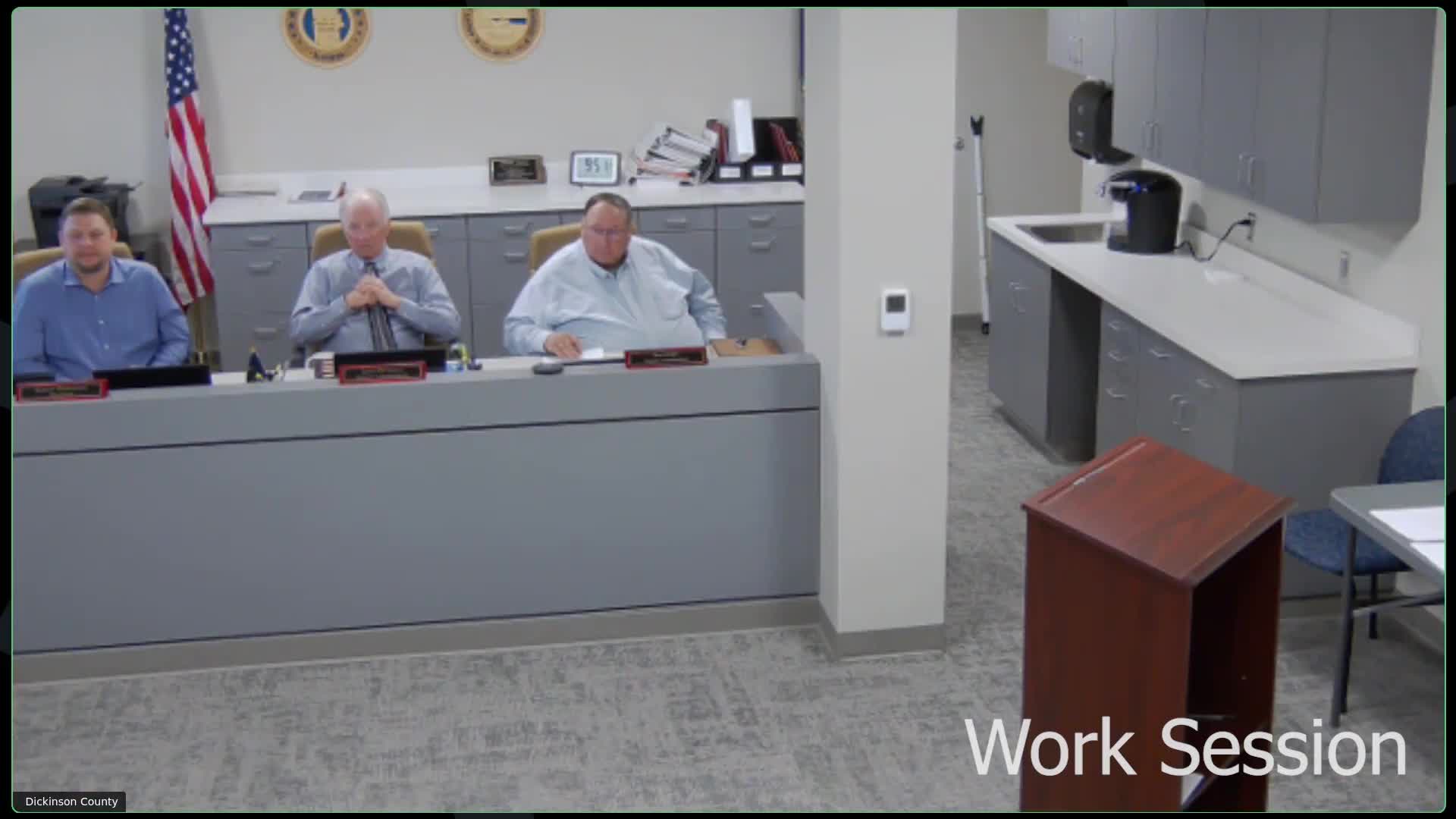Dickinson County treasurer outlines plan to add motor-vehicle facility fee to shore up MV fund
Get AI-powered insights, summaries, and transcripts
Subscribe
Summary
County treasurer presented a proposal to add an in-person facility fee on motor-vehicle transactions to reduce the use of general funds for motor-vehicle operating costs; staff estimated about $3,034,000 in annual revenue if implemented, with an effective date discussed as Jan. 1.
County Treasurer Leah (last name not specified in the transcript) told commissioners during a study-session portion of Friday's meeting that Dickinson County could add a facility fee to most in-person motor-vehicle transactions to reduce the need to subsidize the motor-vehicle office from general revenues.
Leah explained that some counties charge a facility fee and that Dickinson County currently relies on ad valorem (property) tax support for motor-vehicle operating costs. "We can add a facility fee for everyone that comes into the office. It will help. It's not gonna solve our problem, but it definitely will help to get some funds back here in Dickinson County," she said.
She said counties with satellite stations may charge up to $5 per transaction and that counties without satellite stations can charge $2.50; the treasurer said the county's calculation produced an estimated revenue of about $3,034,000 per year if the fee were applied to registrations, titles and commercial transactions.
The treasurer described practical effects for residents: online renewals and mailed transactions would not carry the new in-person facility fee, and some customers who use county motor-vehicle services but do not own real estate would see relatively higher use-based charges. "A number of counties around us already charge that," she said, adding that the county could rescind the fee later if the state provides sufficient funding.
Commissioners asked operational questions about whether online systems could collect the fee; staff answered that the county's current online/state portal could not add the fee immediately. The treasurer asked commissioners whether Jan. 1 would be an acceptable effective date; that date was discussed during the session.
The discussion included clarifying budget mechanics: several speakers emphasized that motor-vehicle office operating costs (printers, toners, mailing) are currently being paid from the county's general/treasurer budget because state fees do not fully cover the office's direct costs.
No formal vote or ordinance to adopt the fee was recorded at the public meeting; the item was discussed at length in the study session and commissioners agreed to public communication about the proposal, including notices in local media and opportunities for constituents to ask questions.
